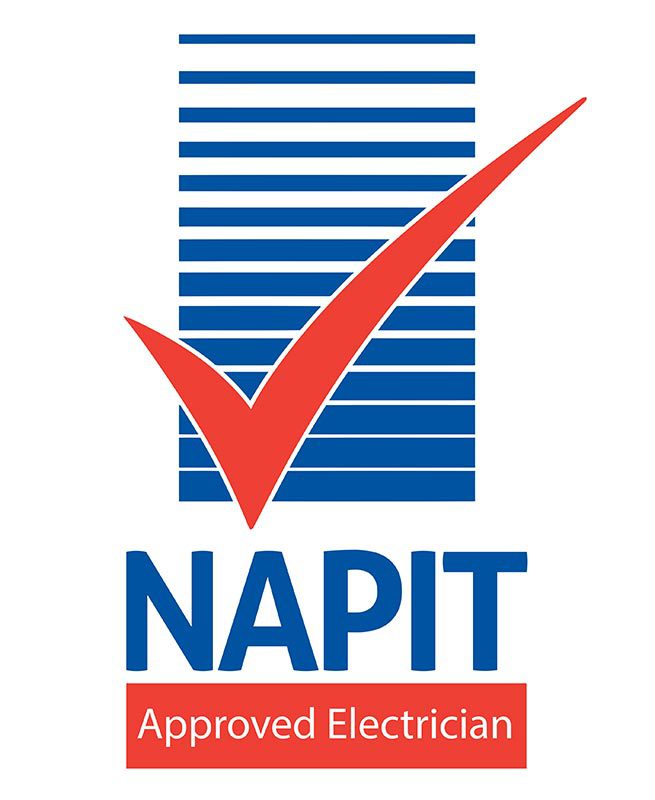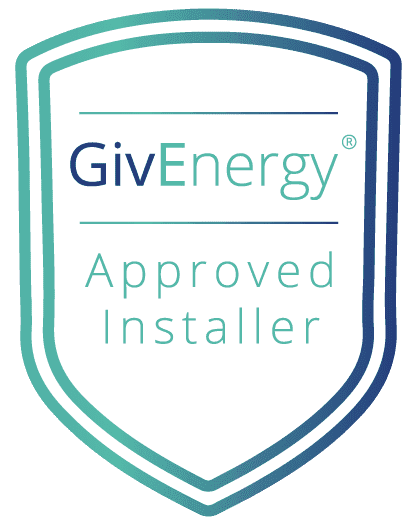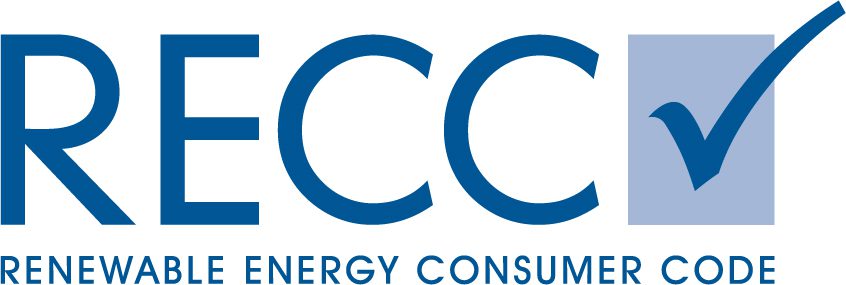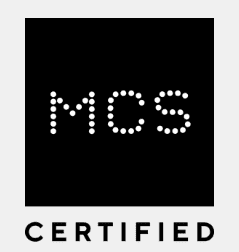What is a solar battery?
A solar battery is a great product to use if you would like to optimise your solar panel system or to save money by utilising off peak electricity rates. A solar battery can be used to store excess electricity that you produce from your solar panel system. You can then use the stored electricity in the battery to supply your home with power when the solar system is no longer generating electricity. You can also use a solar battery to offset expensive electricity. If you have a dual tariff, you can programme the battery to charge during the low cost electricity window and discharge during the high cost electricity window.How do I use a solar battery?
What a solar battery does is help you increase your self consumption of the electricity that you produce. If you don’t have a battery, all of the excess electricity produced will be exported to the grid. Current rates for SEG tariffs are between 2-6p. The difference between what you pay for electricity and get paid for exporting electricity is between 28-33p depending on your tariff. So, you would be saving 28-33p per kwh if you had a solar battery. Sometimes, it is not possible for people to have a solar panel system installed. So, another option to save money and to decrease your carbon footprint is to have a solar battery installed when you have a dual rate tariff. You can then programme the battery to charge during a window when the electricity rate is cheaper and use the stored energy when it is more expensive. This can save you 18-25p per kwh depending on your provider.What are batteries made of?
Most solar batteries which are installed in the uk comprise of lithium ion technology. We see these types of batteries all the time in our day to day life. They are used in electric cars, phones, double AA or triple AAA batteries. They’re everywhere!How do lithium ion batteries work?
Lithium-ion batteries work by moving lithium ions between two electrodes (cathode and anode) through an electrolyte solution. During charging, they move to the anode, storing energy, and then flow back to the cathode when the battery is in use, generating electrical power. The reason that lithium ion batteries are used in a wide variety of applications is because of their compactness, high energy storage capacity, charge faster, and last longer than other battery technologies. Home solar power storage batteries have many lithium ion battery cells with a battery management system that regulates the performance and safety of the whole solar battery system. The inverter usually controls the charging and discharging of the batteries and receives the battery data. Solar batteries are rechargeable from a solar system or the grid.Why do you need an inverter?
The main function of an inverter is to invert the electricity produced from DC which is generated by the solar panels to AC which is used in homes. When you have a DC coupled battery system the DC power produced by the solar system is going through the inverter straight into the batteries. This is because batteries also use DC electricity. The electricity which has been stored is then inverted from DC to AC so that you can use it in your home.What is AC Coupled Storage & DC Coupled Storage?
Battery storage systems come in two forms of coupling. Battery system coupling is how your solar panels are wired to your battery storage system There are two options ,which are direct current (DC) coupling or alternating current (AC) coupling. The difference between the two is the path taken by the electricity that the solar panels create. As mentioned above, solar panels create DC electricity, and the DC electricity must be inverted into AC electricity to be able to use it in your home. However, solar batteries can only store DC electricity.DC Coupled Storage
A dc coupled system is when the electricity generated by the solar panels goes through the inverter and directly into the solar battery. It doesn’t need to be inverted at all until the battery sends electricity to your home.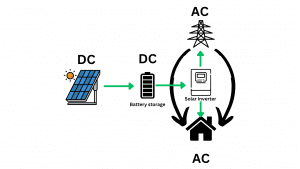
AC Coupled Storage
AC coupled storage solutions are generally used for retrofitting battery storage systems or when you have micro inverters. With AC coupling, DC electricity generated by your solar panels is connected to your grid-tied invert
What is a Hybrid Inverter and how do they work with batteries?
A hybrid inverter is an inverter which can invert to both AC & DC. This is the most efficient inverter if you would like to have battery storage with your solar system. They are also known as a battery- inverter or hybrid string- inverter. The hybrid inverter eliminates the need to have two separate inverters. Hybrid inverters are now standard when you are considering battery storage with your solar system. Even if you aren’t considering battery storage at the time of installation, it is still worth considering a hybrid inverter as they can work with only solar. So, it means you are future proofed if you do ever want to add a battery storage system in the future.Battery capacities
A battery will have two listed battery capacities. They are called the total capacity and the usable capacity. Think of the total capacity as the gross capacity which is the total size of the battery pack and think of the usable capacity as the net capacity which is the amount of battery that you can actually use. The reason for having the total and the usable capacity is to prevent a battery from completely discharging or overcharging. Some batteries have a 100% usable capacity. But, with these specific batteries, it is best to set a minimum reserve of 5%. This is to stop the battery from completely discharging. Also, if you have battery backup, it would be best to set the minimum reserve to 10 or 20% depending on the total usable capacity in your battery storage system. This means that during power cuts, you still have available energy stored that you can use.Benefits of Solar Battery Storage
- Increases your self consumption.
- Saves more money, decreasing payback periods and increasing return on investment.
- Provides power during a power outage
- Provides electricity throughout the evening using stored energy you have generated.
- Allows you to take advantage of dual rate tariffs which can save you an extra £600+ a year currently.
- Decreases your carbon footprint.

